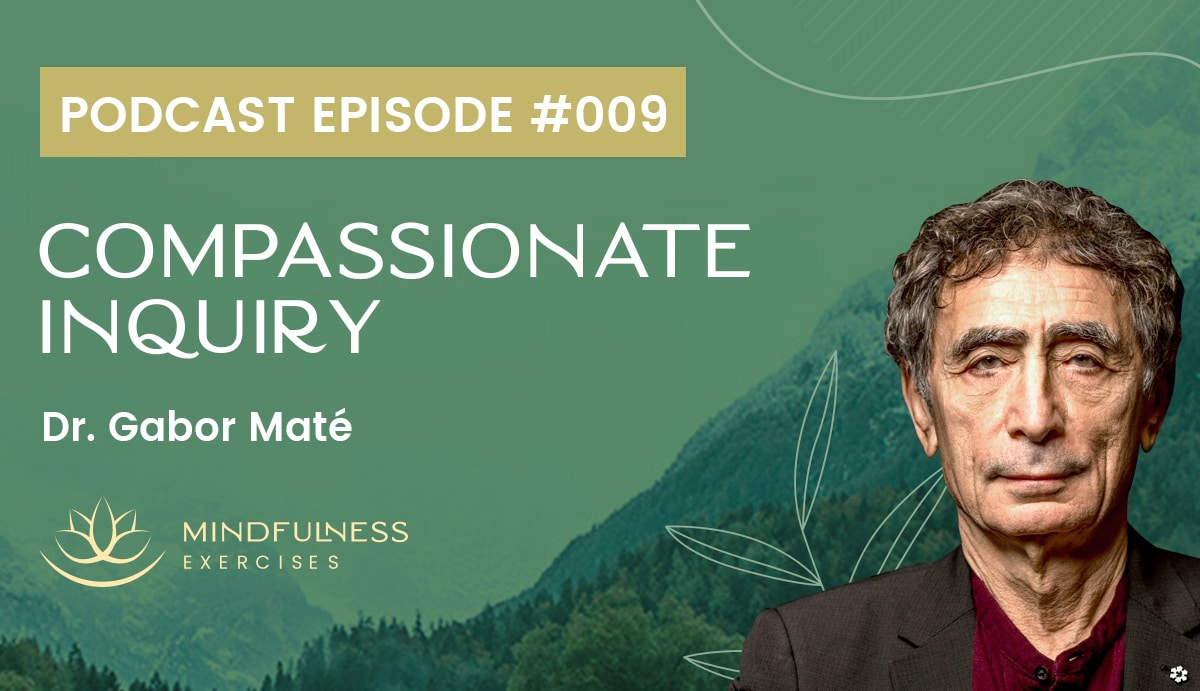Are you able to give yourself the identical tender, compassionate care that you just give to others?
As a mindfulness teacher, your deep desire to assist people is a stupendous expression of your kind and loving heart. Yet in the trouble to serve others, it could actually be easy to set your personal must the side. This could result in feelings of overwhelm, burnout, and stress while draining your energy from being truly present in life.
Even while teaching the practice of non-judgmental awareness, integrating self-compassion into your role as a mindfulness teacher could be hard. It’s normal to note thoughts or feelings of self-judgment, inner criticism, or high expectations throughout your workday. However it’s times like these when you’ve got a chance to deepen your mindfulness and self-compassion so that you could feel much more confident as a mindfulness teacher and practitioner.
Whether you’ve been teaching mindfulness for years or are considering getting certified to show mindfulness, we provide some tricks to aid you integrate greater self-compassion into your role as a mindfulness teacher. Through this post, we draw on insights from the practice of compassionate inquiry developed by Dr. Gabor Maté.
Learn the right way to best use compassionate inquiry to assist yourself and others overcome difficult emotions, self-judgment, and the inner critic on this Mindfulness Exercises podcast episode with Dr. Gabor Maté and Sean Fargo.

Notice self-judgment with caring curiosity
Through your mindfulness practice, you’re becoming increasingly more aware of the thoughts and feelings that arise in your mind. Whenever you notice negative inner self-talk bubble up before or whilst you’re teaching, take a mindful pause. See for those who can allow those thoughts and feelings to be there without pushing them away. Create a glimpse of awareness where you recognize that you just aren’t the negative self-talk that’s happening in your head.
Then try using the strategy of compassionate inquiry to go deeper so you may address the inner critic at its root level. Developed by Dr. Gabor Maté, compassionate inquiry can aid you uncover unconscious dynamics and habits which may be negatively impacting your life.
To practice compassionate inquiry, first recognize the thought, belief, or behavior that could be bringing emotional or mental unease. ” or could also be some common thoughts that arise while you’re teaching mindfulness. Moderately than judging yourself for having these thoughts, turn into interested in them.
“The judgment is just going to occur. It’s automatic. You’ll be able to no more not judge than you may not breathe. Since the human mind, that’s just what it does. It formulates opinions, it has an emotional response to an opinion, and what a judgment is, is an opinion with a negative emotional charge. So, what you do is you notice it.”
With kindness towards yourself, consider asking questions that help you explore any unkind feelings towards yourself equivalent to:
Applying the practice of compassionate inquiry to deal with self-judgments as they arise may aid you be with negative self-talk without getting caught up in it. This is step one to cultivating greater self-compassion for yourself.

Free yourself from the fear of not doing it “right”
Due to the desire to assist others, many mindfulness teachers are initially hard on themselves as they strive to get every thing “right” or “perfect” for his or her students. Yet perfection is nothing greater than an idea – one which can bring quite a lot of pain if we discover ourselves with it.
As you share the attitudes of mindfulness with students, chances are you’ll be teaching them that they don’t must strive to feel peace on this present moment. So remember, neither do you. You’ve gotten an innate wisdom that has guided you prior to now and can proceed to guide you as you teach mindfulness to others.
Whenever you notice that you just’re pushing too hard, feeling stressed whether you’ve put together probably the most helpful mindfulness curriculum, or anxious whether you’ll give you the chance to steer the subsequent meditation easily, take a moment to reflect on other times you’ve done well prior to now. Feel compassion for yourself for wanting to get things done right. Then consider applying compassionate inquiry as outlined above, but now specifically for perfectionist tendencies.
Battling perfectionism? Apply compassionate inquiry
Be gentle with yourself as you think about questions like: What might your perfectionism be protecting you from? Is there a fear of disappointing someone? A fear of failure? A fear of being judged by your students or others? As you answer these, don’t judge your answers or feelings. Simply notice each with caring curiosity.
Do not forget that your desire to be helpful is a results of your loving and caring nature. It’s your sense of compassion that leads you to wish to help others. So anytime you are feeling such as you’re not doing enough, or not doing it right, recognize your personal sincerity as you grow on a private and skilled level.
Reframe your perfectionism as an indication that you’ve got a caring heart. Acknowledge yourself to your heart-centered intention, courage, and willingness to show mindfulness and to assist others.
Overcome the parable of compassion fatigue
You’ll have heard terms like compassion fatigue or empathy fatigue before. These generally confer with the concept that you’re spending a lot time caring for others that you just’re exhausting your personal mental, emotional, and physical health. These feelings are sometimes common within the healing professions and might just as easily be experienced by mindfulness teachers.
Within the Mindfulness Exercises podcast on coping with difficult emotions, Dr. Gabor Maté suggests that compassion or empathy fatigue is nothing greater than an absence of compassion towards ourselves.
We don’t turn into exhausted from helping others as much as from caring for others on the expense of our own well-being. Not attending to our needs could make us feel underappreciated and overstressed. This could eventually result in burnout and might even cause many mindfulness teachers to provide up and pursue a distinct path. So to counter this, Dr. Gabor Maté suggests setting healthy boundaries and practicing personal self-care.

Set healthy boundaries without guilt
“Compassionate people ask for what they need. They are saying no once they must, and once they say yes, they mean it. They’re compassionate because their boundaries keep them out of resentment.”
Not taking up greater than you may handle without sacrificing your personal wellness could also be one of the vital self-compassion practices you may do as a mindfulness teacher. This may increasingly require a more fierce form of self-compassion so that you could are inclined to your needs without feeling bad or guilty. Leading self-compassion researcher and creator Kristin Neff refers to this as a “mama-bear” form of compassion that requires us to set boundaries to guard ourselves.
Perhaps you’ve got a student who regularly calls or messages you on weeknights or the weekends while you’re spending time together with your family. Or a student who emails you five times a day, taking over hours that it’s good to spend on preparing to your next class. Knowing your personal boundaries and communicating them to others could be hard at first. But with practice, it could actually turn into a more effortless and natural way of caring for yourself.
Dr. Gabor Maté suggests that unless we implement our own boundaries, we may feel resentment towards those that don’t honor them (even when we’ve never communicated these to them). Asking someone to respect your needs may initially fire up feelings of guilt or “feeling bad.” Yet Dr. Gabor Maté notes that guilt generally is a natural indication that we’re doing something for our own self-care.
“When there’s a No that should be said, you may select guilt, or you may select resentment. Go for the guilt. The resentment is poison…It’s hard, but go for it, you’ll be loads healthier for it. Eventually, the guilt will surrender by the best way.”
To set healthy boundaries without guilt, set clear expectations upfront. Tell your students what to anticipate from each class so far as support and the right way to best communicate with you. Although chances are you’ll first worry that individuals won’t like this, chances are you’ll find that the majority students will happily honor and respect your decisions and guidelines.
Find time for self-care
Take a moment to reflect on moments when people like to be around you. It’s probably while you’re feeling energized, glad, and healthy. Your students aren’t any different. Identical to your folks and members of the family, they will pick up in your energy which can affect their very own.
Many might feel uplifted, inspired, or hopeful once they sense ease and luxury coming through your presence as you teach. That is why self-care is a vital part of practicing self-compassion as a mindfulness teacher.
Attending to your personal, physical, and emotional needs is a way of showing yourself that you just’re worthy of receiving the identical care you provide to others. You’re worthy of taking downtime to easily chill out and be. You’re worthy of taking the time to make healthy and nourishing foods for yourself and to exercise your body. If you’ve got a tough time finding the time for self-care, see for those who can construct it into your every day schedule just as you’d any of your teaching or work obligations.
“If I’m not good to myself, how can I expect anyone else to be good to me?”
Lead by example…with compassion for yourself first
As you teach mindfulness, there could also be many moments while you recognize you’re being too hard on yourself. Moderately than feeling upset about this or judging yourself, use this as a moment of energetic teaching.
If you happen to forgot to organize the materials it’s good to teach a lesson, for instance, which may present an incredible probability to show compassion towards yourself. Recognize that this could be hard, but notice that you just still have your inner wisdom to guide you. Offer yourself some soothing words and a young touch.
Your presence is one of the best living example to your students. You could even consider sharing what you’re going through and the way you’re navigating it to permit students to see that it’s normal to have self-critical thoughts but that they will select to reply to them in another way. They will at all times select self-compassion, just as you may.
To learn the right way to use compassionate inquiry to extend self-compassion, hearken to the complete episode of this Mindfulness Exercises podcast with Dr. Gabor Maté.
Listed here are some additional free self-compassion and self-care mindfulness exercises to aid you implement these insights:






